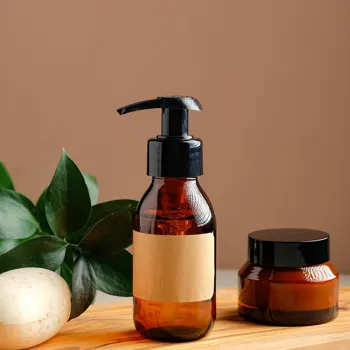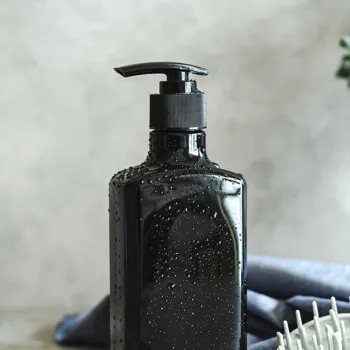Unlock the secret to healthy hair with our guide on choosing the right shampoo for your hair type! Dive in!
In the vibrant and diverse landscape of India, where hair is often considered a symbol of beauty
and pride, taking proper care of your tresses is of utmost importance.
With a plethora of shampoos flooding the market, each promising miraculous results, choosing the right one for your specific hair type can feel like navigating a complex maze.
This comprehensive guide aims to simplify the process, empowering you to make informed decisions and unlock the secret to healthy, lustrous hair.
Identify hair type, texture, scalp conditions, and history for shampoo selection
First, identify your hair type. Is it oily, dry, normal, or combination? Then, consider the texture: fine, medium, or coarse. Also, take note of any specific scalp conditions such as dandruff, sensitivity, or itchiness.
Finally, consider your hair's history: is it color-treated, chemically processed, or virgin? Understanding these aspects is crucial to selecting a shampoo that caters to your hair's unique needs.
For oily hair, look for shampoos labeled as "clarifying" or "oil-control," designed to remove excess sebum without stripping the hair of its natural moisture. Dry hair benefits from moisturizing shampoos enriched with ingredients like shea butter, argan oil, or glycerin.
Normal hair can usually tolerate a wide range of shampoos, but it's still important to choose one that is gentle and pH-balanced.
Medicated shampoos for dandruff, gentle for sensitive scalps, color-treated, or chemically processed hair care
For those struggling with dandruff, medicated shampoos containing ingredients like ketoconazole, zinc pyrithione, or selenium sulfide can help control the yeast that contributes to dandruff. Sensitive scalps require gentle, fragrance-free shampoos that won't cause irritation.
If your hair is color-treated, opt for shampoos specifically formulated for color-treated hair, as these are designed to protect the color and prevent fading.
Chemically processed hair, such as permed or relaxed hair, needs moisturizing and strengthening shampoos to repair damage and prevent breakage.
Importance of reading shampoo ingredients for different hair types
Now, let's delve into the importance of reading the ingredient list. Familiarize yourself with common shampoo ingredients and their effects on different hair types. Sulfates, for example, are cleansing agents that can be harsh on dry or sensitive hair.

Parabens are preservatives that have raised some concerns about potential health effects. Silicones can create a smooth, shiny appearance, but they can also build up on the hair over time, leading to dullness and dryness.
Look for shampoos that are free of sulfates, parabens, and silicones if you have dry, sensitive, or easily weighed-down hair.
Choose shampoos with natural oils, plant extracts, and vitamins for hair health
Instead, seek out shampoos that contain beneficial ingredients like natural oils, plant extracts, and vitamins. Argan oil is a fantastic moisturizer for dry hair, while aloe vera can soothe and hydrate sensitive scalps.

Green tea extract can help protect hair from environmental damage, while biotin can promote hair growth. The key is to find a balance between cleansing and nourishing ingredients that work in harmony with your hair type.
Always do a patch test before using a new shampoo, especially if you have a sensitive scalp. Apply a small amount of the shampoo to a discreet area of your scalp and wait 24 hours to see if any irritation occurs.
Maintain hair health with pH-balanced shampoo
Consider the pH level of your shampoo. The pH scale ranges from 0 to 14, with 7 being neutral. Hair and scalp have a slightly acidic pH of around 4.5 to 5.5. Using a shampoo that is too alkaline can disrupt the scalp's natural pH balance, leading to dryness, frizz, and irritation.

Look for shampoos that are pH-balanced or have a pH level close to the natural pH of your hair and scalp. This will help maintain the health and integrity of your hair. Many shampoos will state "pH Balanced" on the bottles.
Experiment with shampoos to suit your hair's seasonal needs
Experimentation is key! Don't be afraid to try different shampoos until you find one that suits your hair's needs. You may need to switch shampoos seasonally, as your hair's needs can change depending on the weather.

What works well in the humid monsoon season may not be ideal for the dry winter months. Also, remember that shampoo is just one part of a complete hair care routine. Use a conditioner after shampooing to replenish moisture and detangle your hair.
Incorporate a weekly hair mask or deep conditioning treatment to nourish and repair your hair. Protect your hair from heat damage by using a heat protectant spray before using styling tools.
Choose shampoo wisely for healthy, vibrant hair
Pay attention to how your hair feels and looks after using a particular shampoo. Is it clean and refreshed, or does it feel dry and stripped? Is it shiny and bouncy, or does it feel dull and weighed down? If you're not happy with the results, don't be afraid to try a different shampoo.

It may take some trial and error, but eventually, you'll find the perfect shampoo that will transform your hair from dull and lifeless to healthy and vibrant. Remember, healthy hair is happy hair, and the right shampoo is the foundation for a beautiful and confident you.











